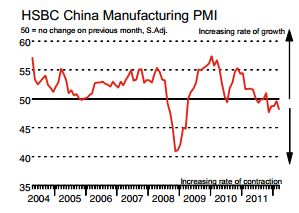On Tuesday morning, we are witnessing a lackluster trading session in Asian stocks, as most of them pare slight gains barring Japan. With the US closed yesterday, no major leads were given to the Asian markets. The gains are being restricted as investors are still wary of the Spanish debt crisis.
On the Economic front, from the Euro-zone we have the German Import Price index and the Consumer Price Index, both of which could show a negative tick, hurting the euro in the afternoon session. From the US, Consumer Confidence would be closely watched and is expected to come up marginally to 69.5, from a previous number of 69.2. This could support the USD in the evening session.
Euro Dollar:
EURUSD (1.2534) The euro rallied in the Asian session after a weekend poll suggested that the Greek pro‐bailout New Democracy had gained an advantage over the radical left anti‐bailout Syriza; however polls remain tight and risk is high, even with a ND win. News reports this weekend suggest that Greece will run out of cash on June 20th. This combined with ongoing reports of bank withdrawals poses a major problem for the country. The IMF is unlikely to extend their requirement that Greece reach a debt level of 120% by 2020, leaving Greece increasingly vulnerable to another round of debt relief or default. However, this time the public sector would be more materially hit, since there is limited debt held by the private sector. By afternoon Spanish banking had turned investors hope into pessimism as the euro crashed.
The Great British Pound
GBPUSD (1.5678) The pound snapped a four-day advance against the euro as Greek polls showed greater support for parties supporting the country’s bailout plan, damping demand for U.K. assets as a refuge.
Sterling declined against 13 of its 16 major counterparts before U.K. reports this week that economists said will show consumer confidence worsened and manufacturing contracted, adding to signs the economy is faltering. Ten-year gilt yields rose from within a basis point of a record low.
The pound was little changed at 79.96 pence per euro at 4:43 p.m. London time after rising 1.3 percent over the previous four days. Sterling was also little changed at $1.5682. It dropped to $1.5631 on May 24, the weakest since March 13.
Asian –Pacific Currency
USDJPY (79.48) The JPY is up 0.4% since Friday, even as risk appetite has improved. The strength appears to be coming from reiteration from the BoJ that further asset purchases are not guaranteed. USDJPY appears somewhat bound by 79 to 81, with the risk of intervention rising materially below 79.
Gold
Gold (1577.65) declined for the first time in three days, set for the worst run of monthly losses since 1999, as concern that Europe’s fiscal turmoil is worsening boosted the dollar. Platinum fell.
Spot gold lost as much as 0.6 percent to $1,571.43 an ounce and was at $1,573.60 at 9:44 a.m. in Singapore. Bullion is 5.5 percent lower this month, the biggest drop since December and the fourth straight monthly decline. The dollar has gained 4.5 percent against a six-currency basket including the euro in May.
Crude Oil
Crude Oil (91.28) rose for a third day in New York as speculation that U.S. economic growth will boost fuel demand in the world’s biggest crude consumer countered concern Europe’s debt crisis will worsen.
Futures advanced as much as 1.2 percent from the close on May 25. U.S. consumer confidence probably gained in May and job growth may have picked up, according to surveys by Bloomberg News before reports this week. Oil has slipped 13 percent this month amid concern Europe’s debt crisis will derail the global economic recovery.
Crude for July delivery climbed as much as $1.13 to $91.99 a barrel in electronic trading on the New York Mercantile Exchange and was at $91.12 at 12:24 a.m. Sydney time. Floor trading was closed yesterday for the U.S. Memorial Day holiday and transactions will be booked with today’s trades for settlement purposes. Front-month prices are down 7.8 percent this year.
Brent oil for July settlement was at $107.01 a barrel, down 10 cents, on the London-based ICE Futures Europe exchange. Prices have fallen 10 percent in May. The European benchmark contract’s premium to West Texas Intermediate was at $15.89, from $16.12 yesterday.



